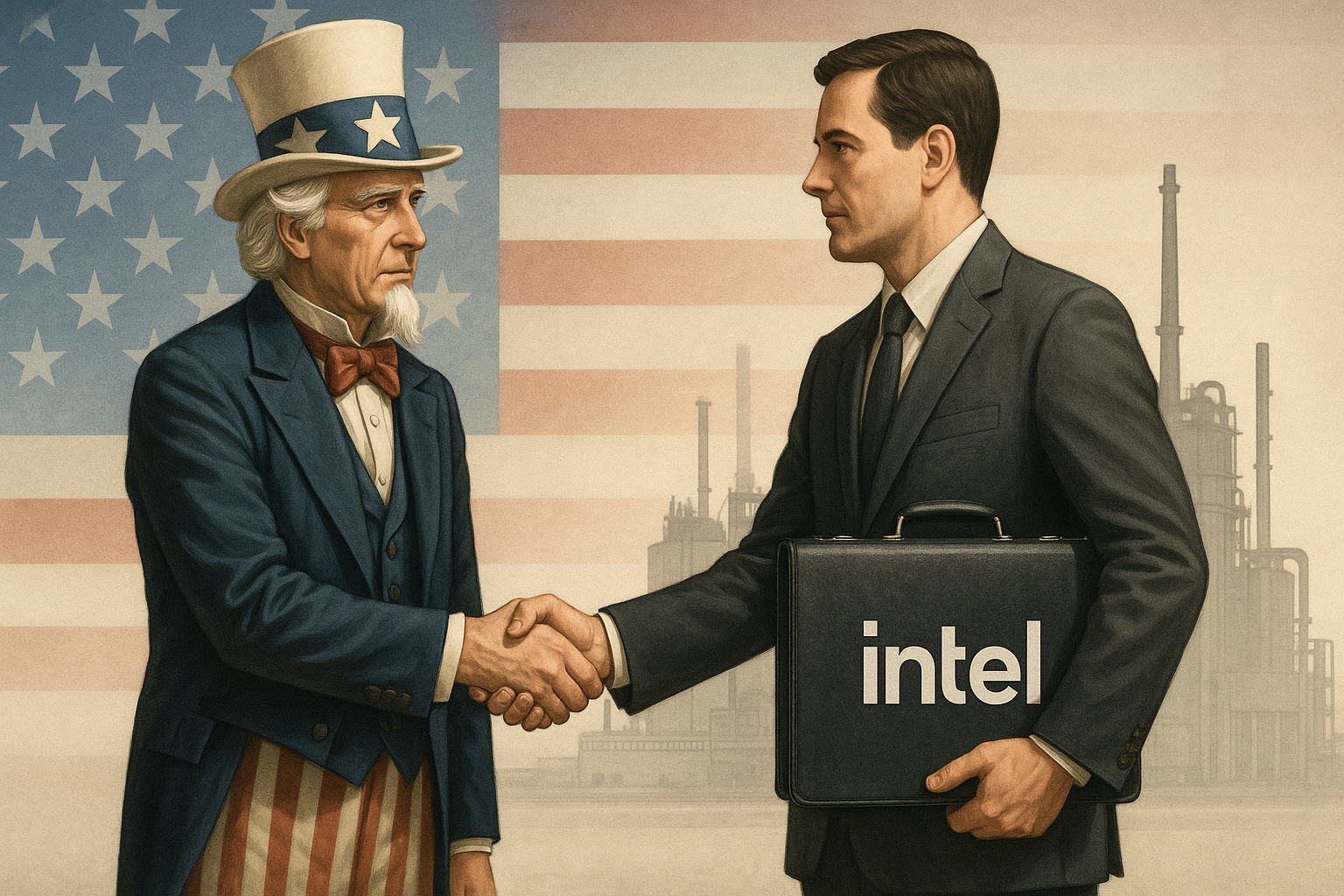The US government is flirting with the idea of buying a 10% chunk of Intel. Yes, you read that right. Not a bailout or a loan—an actual ownership stake in America's semiconductor stalwart.
Look, I've covered tech policy for years, and this proposal still made me do a double-take when Bloomberg broke the story yesterday. Uncle Sam as Intel's largest shareholder? That's not just unusual—it's unprecedented in modern American tech history.
Intel, once the undisputed king of chips, has spent the last seven years or so tumbling from its throne. Their manufacturing missteps have become so routine they barely qualify as news anymore. (Remember when Intel delaying a new process technology would've been front-page material? Those were simpler times.)
The company's market cap has shriveled from around $300 billion to a comparatively measly $120 billion. Meanwhile, TSMC—the Taiwanese manufacturing powerhouse—has been eating Intel's lunch with apparent relish.
I spoke with three semiconductor analysts yesterday who all used different metaphors to describe Intel's predicament, my favorite being: "They're like a former heavyweight champion who keeps tripping over their shoelaces while trying to get back in the ring."
Pat Gelsinger, Intel's CEO since 2021, has been on something of a crusade to restore the company's manufacturing prowess. His strategy requires massive capital expenditure at precisely the moment when Intel's revenue stream is drying up. Not exactly ideal timing. The company recently slashed its dividend by two-thirds—typically not what you'd call a bullish indicator.
So why would the government want in on this troubled corporate marriage?
It's complicated. And fascinating, frankly.
The semiconductor industry isn't just any industry—it's the foundation of... well, nearly everything in modern life. Your phone, your car, your refrigerator, those annoying digital billboards, military systems, AI supercomputers. Having domestic manufacturing capability has evolved from nice-to-have to national-security-imperative in Washington's eyes.
There's also the China factor. With Beijing making no secret of its Taiwan ambitions and TSMC sitting pretty as the world's most advanced chip manufacturer, U.S. policymakers are sweating bullets about potential supply chain disruptions that could cripple everything from the iPhone to F-35 fighters.
The CHIPS Act was supposed to address this, pumping billions into domestic semiconductor manufacturing. But maybe—and I'm speculating here—the administration has decided that's not enough. Perhaps they've concluded that having a seat at the table (or rather, the boardroom) is the only way to ensure American chip-making capability doesn't completely wither away.
Intel's stock jumped on the news, which isn't surprising. When you're treading water, any lifeline looks good—even one attached to the sometimes-clumsy hand of government.
But I can't help wondering: is this really the right approach?
Government ownership introduces all sorts of potential complications. During the 2008 financial crisis, the feds took stakes in GM and AIG with the explicit goal of exiting those positions as soon as possible. This feels... different. More permanent. More strategic.
Having covered past government interventions in private industry, I've seen how political considerations can warp business decisions. Will Intel suddenly find itself pressured to keep open factories that make no economic sense but happen to employ voters in swing states? Will the long-term R&D investments crucial to semiconductor leadership get sacrificed on the altar of short-term political expediency?
The conventional wisdom says governments make terrible corporate owners. They think in election cycles, not decades. They answer to voters, not shareholders. The incentives are all wrong.
Then again, maybe this is the exception that proves the rule. Semiconductors aren't just widgets—they're the foundation of modern civilization and national defense. Perhaps this is the rare case where government ownership actually serves a legitimate strategic purpose.
Still, there must be other ways to achieve the same objectives, right? More targeted subsidies? Defense contracts? Export controls?
Direct ownership feels like using a sledgehammer when a scalpel might do. But hey—sometimes you need a sledgehammer.
One thing's for certain: if this deal goes through, Intel board meetings are going to get real interesting, real fast. Imagine government representatives suggesting that maybe, just maybe, Intel should prioritize American national security over quarterly profits.
Which... hmm. When you put it that way, it doesn't sound completely terrible.
We're entering uncharted waters in the relationship between government and tech companies. A Silicon New Deal, if you will. Whether this turns out to be a masterstroke of industrial policy or an expensive boondoggle remains to be seen.
But at least it'll be fascinating to watch.




